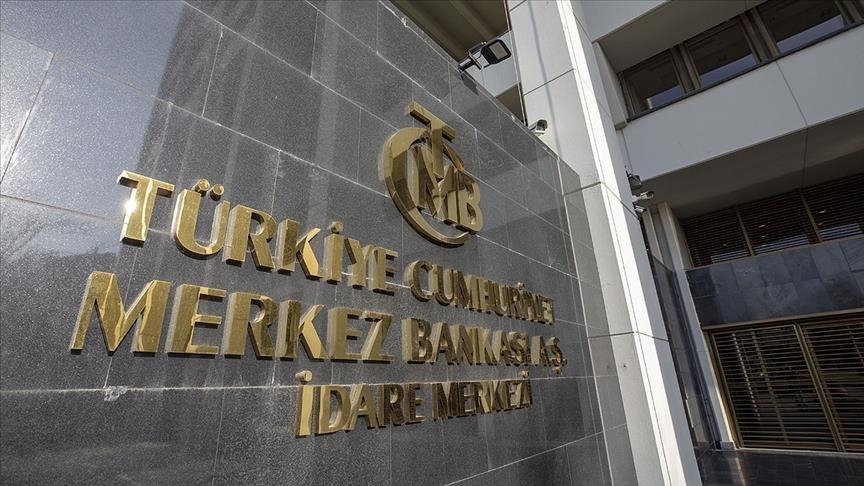Turkish Central Bank's rate hike surprises, pleases economists
Economists laud 200-basis-point interest rate rise as important move in fighting inflation

ISTANBUL
Both foreign and domestic economists in Turkey have applauded what they said was an unexpected rate hike by the country's Central Bank.
The Central Bank of the Republic of Turkey (CBRT) decided on Thursday to increase its policy rate by 200 basis points from 17% to 19%.
Following the surprising move, the US dollar/Turkish lira exchange rate sank by around 1.5-2% to around 7.35. Market expectations had been for around 100 basis points.
While economists welcomed the decision, businesspeople warned of its possible effects on investments, as well as of inflation stemming from foreign goods amid global price rises.
Cristian Maggio, the head of emerging markets strategy at Canada-based TD Securities, told Anadolu Agency that the bank's decision was "certainly positive."
He noted that the move was a surprise as it exceeded the consensus estimates for a hike of 100 basis points, while TD Securities' forecast had been for rates to remain unchanged.
"We mentioned that the risk for a hike was material, but we thought that politics would weigh in to dissuade CBRT from hiking rates again today. The CBRT, however, has proved us wrong," he underlined.
Maggio stressed that policymakers delivered a strong signal to the market, leading to an appreciation of the Turkish lira.
"More tightening is possible going forward but should not be taken for granted. We would see additional hikes still a function of USDTRY rather than CPI [inflation]," he added.
Reigniting lira demand
Piotr Matys, a strategist at the Dutch-based Rabobank, said the Central Bank's decision was not about market decisions, "but to exceed them to confirm that the Central Bank remains fully committed to keeping inflation on track to fall in the second half of the year by supporting the lira with high-interest rates."
He noted that the bank's moves were positive for the Turkish lira, which is key to reigning in the inflation rate.
With a policy rate of 19%, the Turkish lira became one of the highest-yielding emerging market currencies.
Predicting that inflation would start to fall in the second half of the year, he told Anadolu Agency: "The hike may reignite demand for the lira amongst carrying trade players who benefit from substantial interest rate differentials."
He also underlined that comprehensive structural reforms would be necessary for a long-term positive view of the lira.
Not easy, but critical
Timothy Ash, a senior emerging-market strategist at the London-based BlueBay Asset Management, also tweeted that the move exceeded market expectations.
He stressed that the hawkish moves of Naci Agbal, the head of the bank, were right for promptly getting inflation under control.
Robin Brooks, the chief economist at the US-based Institute of International Finance, also tweeted: "We've been very positive on Turkey's new economic policy team, and today's CBRT hike again underscores that."
Increasing the rates is never easy, but it is critical here when the US' longer-term interest rates are completely unanchored, he asserted.
Enver Erkan, an economist at the Istanbul-based private investment firm Tera Yatirim, said the bank decided on much more tightening above expectations.
The decision was important against inflationist pressures and market volatility, he underlined.
Hakan Kara, a lecturer and an economist at Turkey's Bilkent University, said the bank took a strong step in the fight against inflation.
He also said that Agbal has continued to raise confidence since he took office in November.
"When we carefully examine all the steps taken since November, we see an example of a professional and prudent central banking," he added.
High-rates should be temporary
Abdurrahman Kaan, the head of the Independent Industrialists and Businessman Association (MUSIAD), also noted that the 200-basis-point hike had not been expected.
"We believe it won't be sufficient to continue the fight against inflation only with the policy interest instrument, since the price increases originating from global markets, especially food and commodities, are outside the scope of the Central Bank," Kaan said in a press release.
Voicing his concerns on the potential impact of the move on business investments and their debt structures, he stressed that the boosted interest rates should be temporary as the country seeks to secure permanent low-interest rates.
He also urged for longer-term loans for house sales to prevent pressure on economic activity due to the high policy rate.
The policy rate, which was 12% at the beginning of 2020, was gradually increased to 15% by December 2020.
After Agbal replaced his predecessor, Murat Uysal, the bank increased the rate by 400 basis points, 200 in December and 200 in March.
In 2018, the policy rate had seen up to 24%.
Anadolu Agency website contains only a portion of the news stories offered to subscribers in the AA News Broadcasting System (HAS), and in summarized form. Please contact us for subscription options.

